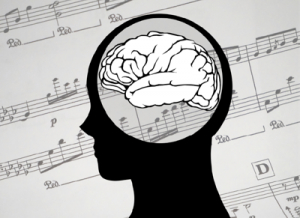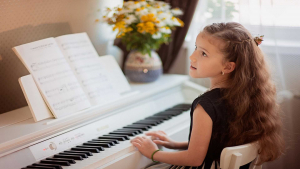Displaying items by tag: piano
3 Easy Apps You Can Use For Writing Your Music
Now that you've taken the time to clear your mind from the daily drama n grind, you can finally get to committing that song you've had in your head onto paper.
Maybe you have a few ideas jotted down here and there, but you need to have all that in one place. Today I will discuss 3 apps you can use that are free and quite good at helping you with your songwriting process.
1. Piano Chords And Scales
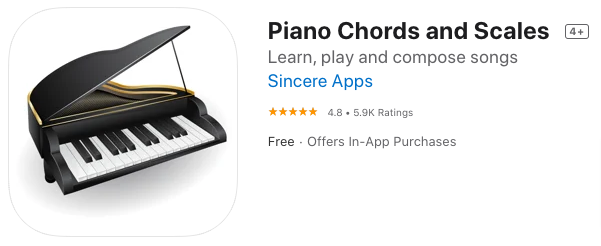
To make any song sound right, you need to know your basic chords and scales. Piano Chords And Scales is available from the App Store and Google Play.
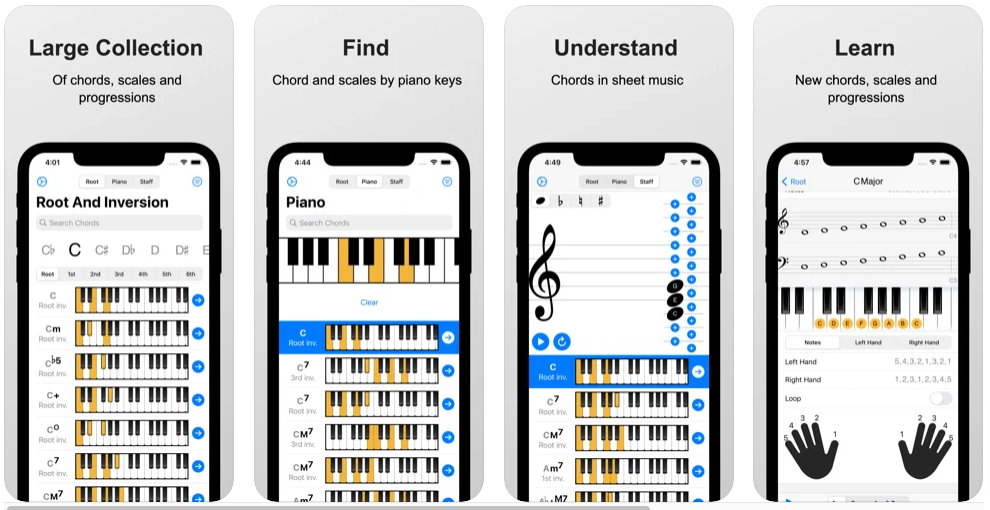
This nifty app shows you the position of all the chords and scales on the keyboard. This is a delight for those of you who have trouble reading the notes on paper but know what the chord names sound like. There's even a feature that lets you build chord progressions and write songs that you can save and playback later.
Now that you've figured out the chords and progressions for your song, you need to commit it to staff paper!
2. Musescore

Musescore is free software that is ideal for first-time score writers. It allows you to connect your MIDI keyboard, or use keyboard and mouse strokes to enter notes on the screen. It might take you a few minutes to get the hang of composing with this software. If you're feeling lost, there are excellent videos on YouTube by musicians that should help you along the way.
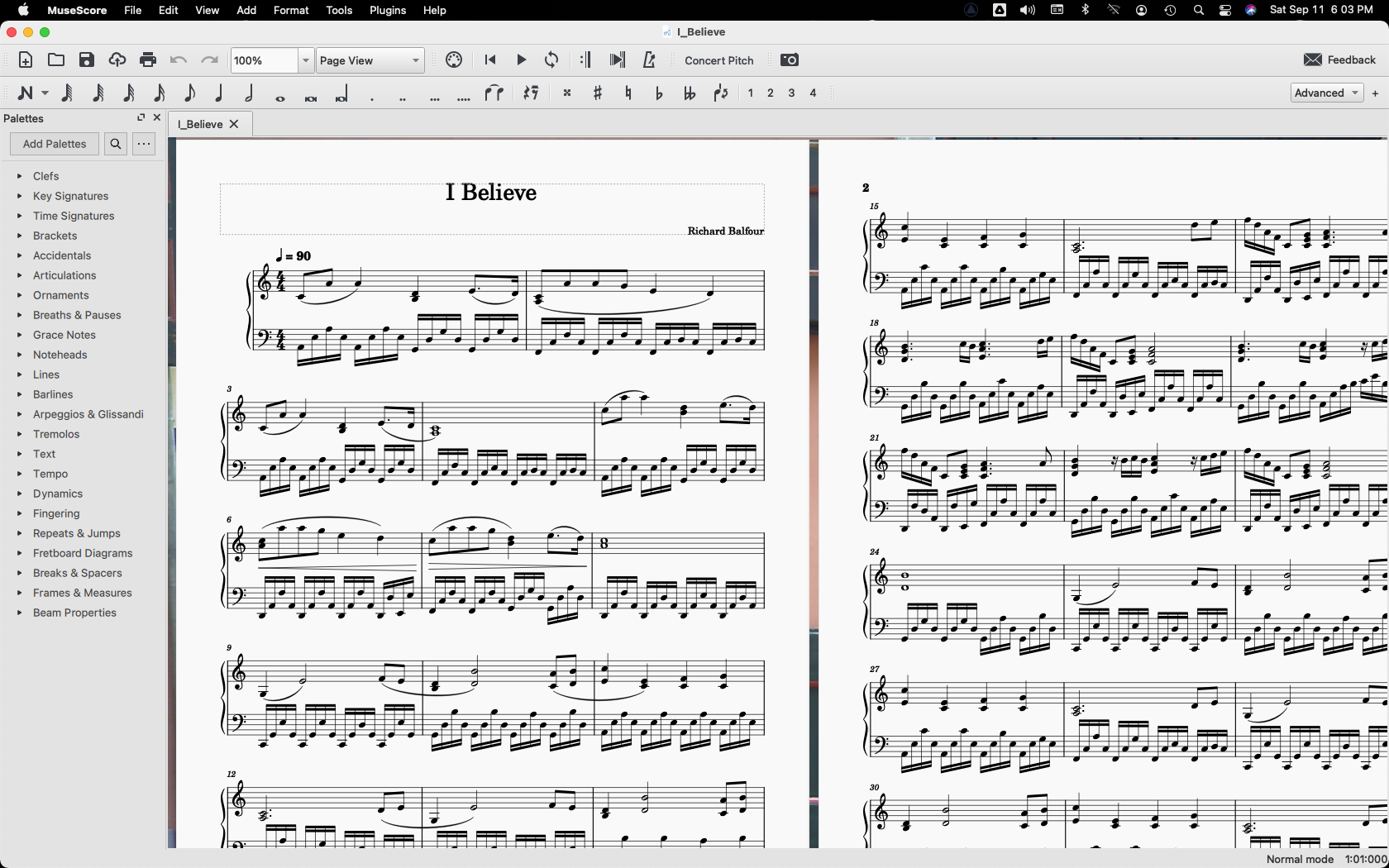
Musescore also has a community website where you will find a wide variety of songs that you can download and play for free. There is even a feature that converts your musical piece into a video on YouTube.
3. Avid-Sibelius First
Sibelius is one of the most well-known commercial music notation programs available. Their First version, a free download gives you an interface similar to Musescore, with a slightly less complicated learning curve.
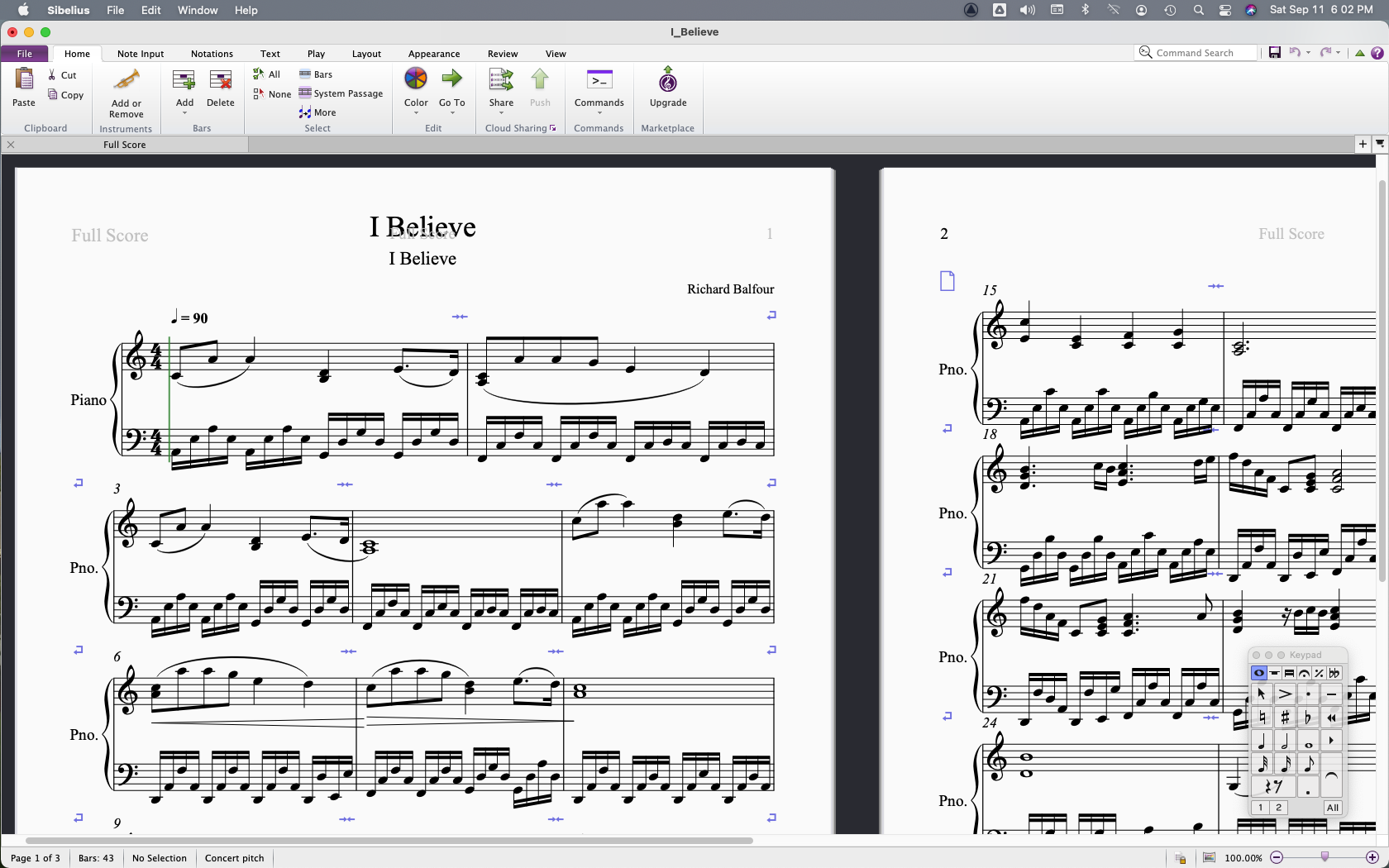
I was able to export my MIDI file from Musescore and import it without issue into the Avid software. There are a few more professional tools in this and in other versions they offer but for a free notation tool this one you can't miss!
Conclusion
Each of these tools should be in your repertoire. With some time and practice, you'll find yourself at ease creating new music and hopefully inspire others to do the same.
A Dozen A Day - Practice The Old Fashioned Way
Simplicity wins the day!
Learning to play piano with the right fingers and technique can be compared to learning a new language. You need to learn how to crawl, then walk before you run.
If you're looking for a simple and fun way to learn to keep time and develop proper finger dexterity, you need to try the A Dozen A Day series, "Technical exercises for the piano to be done each day BEFORE practicing".
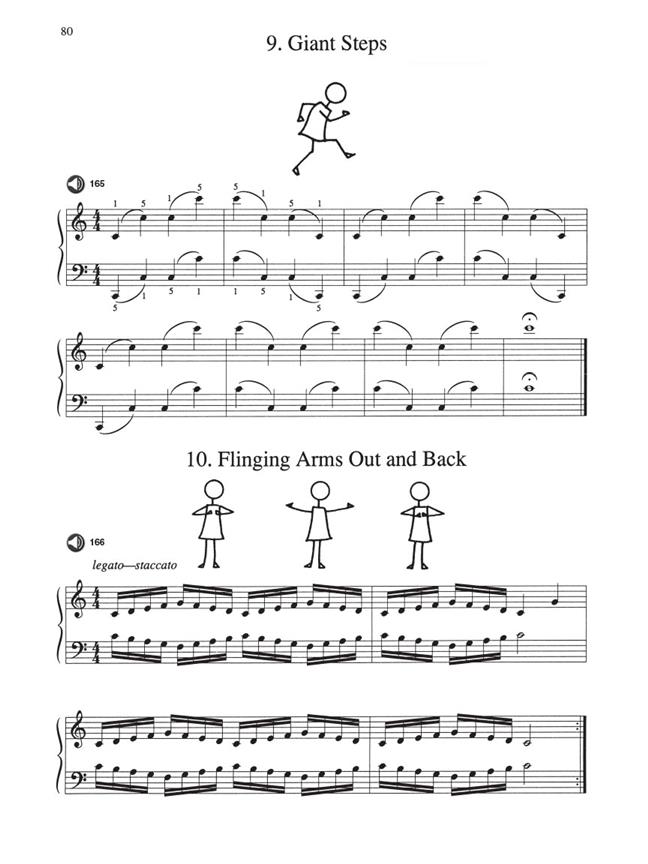
Well, the motto is to the point, and so are the little stick figures that accompany you through your 5-Levels of 12 exercises each. They are very simple to follow, and each module is designed to incorporate elements in music that you'll find in just about any style.

I grew up with this series while taking my conservatory classes. It's nice to see that they're still around today, as I use them extensively with my students over the years. They call it the "stick figure" book, but what's rewarding are the techniques they learn that stick with them for life.
A Dozen A Day is one of the best 12-step programs out there, and I highly recommend them to anyone who wants to be serious about their piano playing.
Sources:
- https://www.halleonard.com/product/414222/a-dozen-a-day-preparatory-book
- https://fr.wikipedia.org/wiki/Edna_Mae_Burnam
- https://www.willispianomusic.com/search/search.action?_c&menuid=14329&seriesfeature=&subsiteid=264
10 Amazing Benefits of Learning To Play The Piano
If you took lessons for years as a child, or never took any lessons at all, here's some good news for you!
It's never too late to start playing! With that in mind, here are 10 good reasons and amazing benefits of learning to play the piano!
-
Prevents Brain Processing, Hearing and Memory Loss

The ability to process auditory signals usually slows down as we age. However, participants of a recent study who continued to play music throughout their lives had helped reverse the decline of brain processing, memory, and inner ear hearing loss.
Source: ABC News
-
Improved Counting & Math Skills
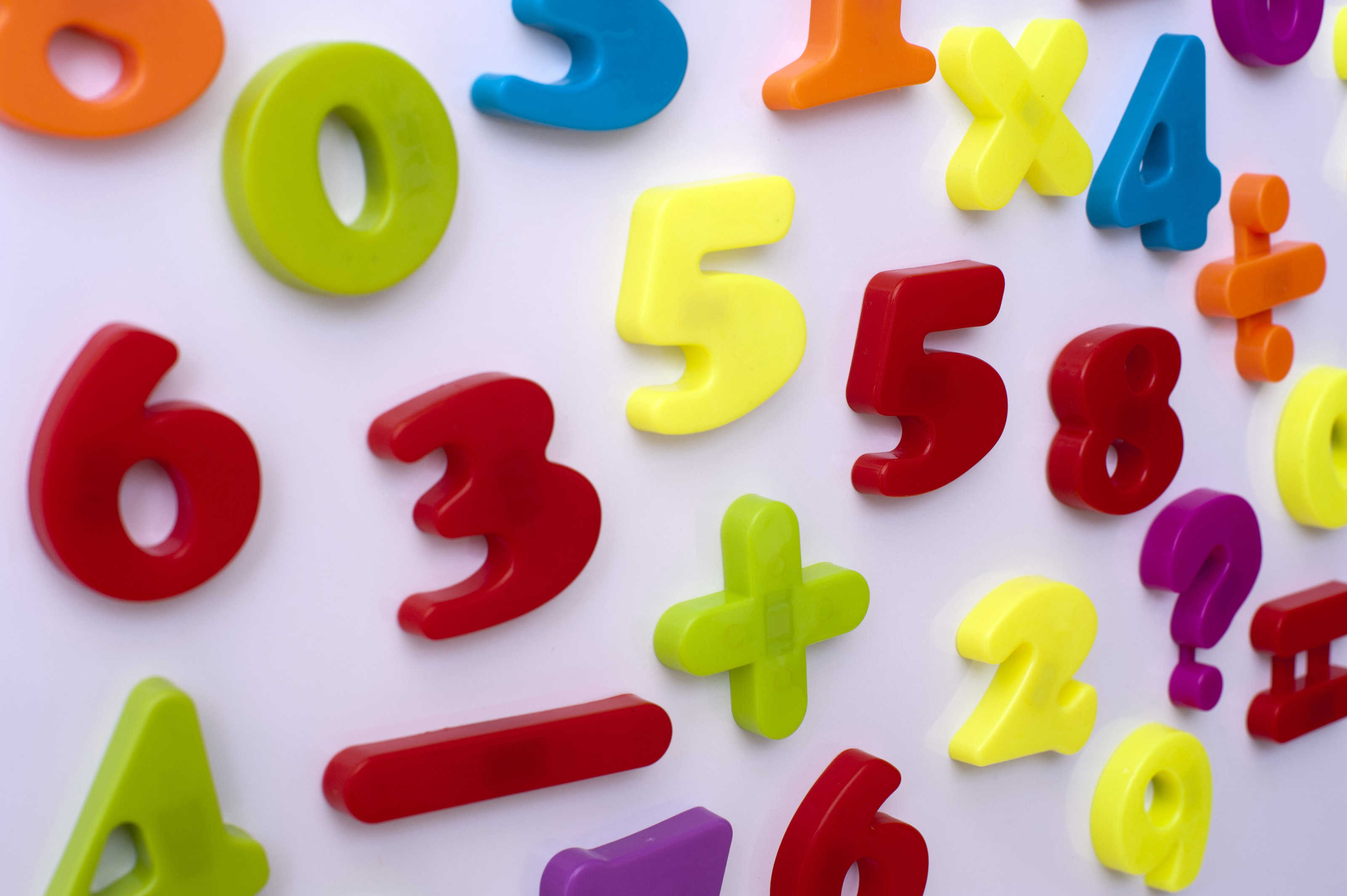
A study conducted by Martin F. Gardiner and his colleagues at the Center for the Study of Human Development at Brown University found that specialized musical training in specific increments toward greater difficulty boosted second graders’ math skills significantly above their peers.
Source: Brain Connection Education Week
-
Exercising New Language Skills
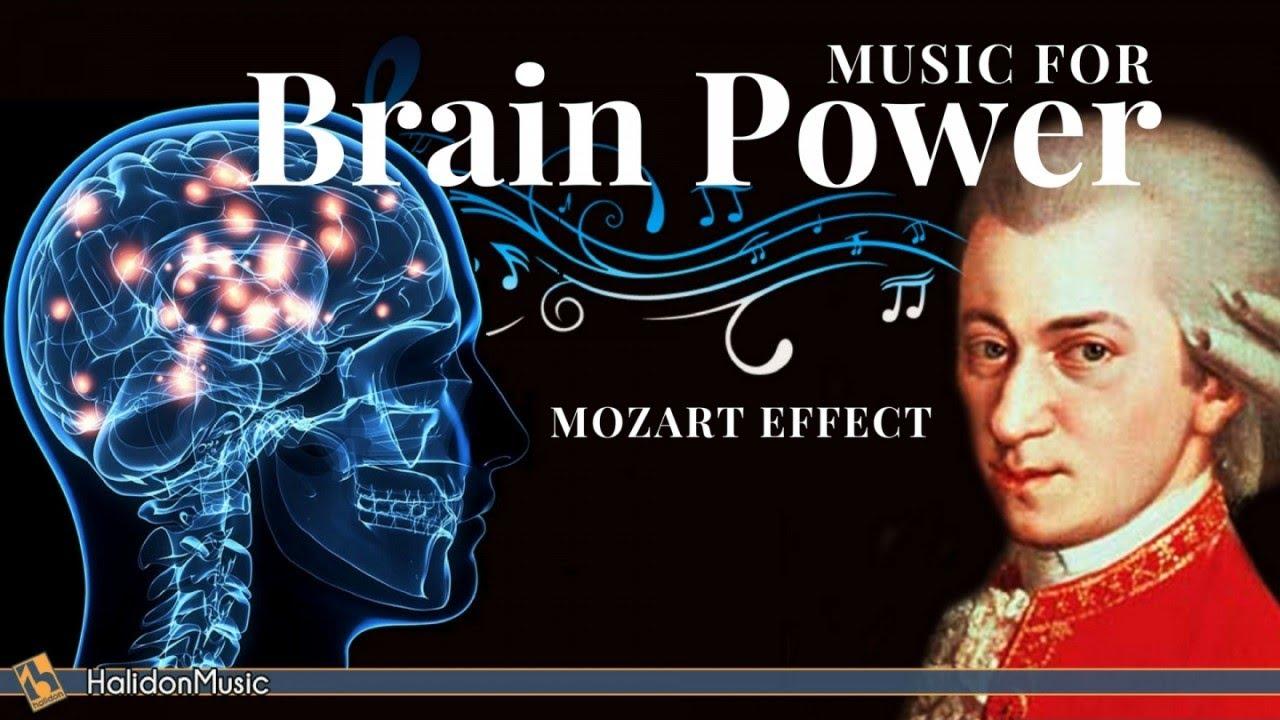
A study in the early 1990s discovered the “Mozart effect” in children, which showed early language development and spatial-temporal intelligence could be boosted by keyboard lessons for preschoolers.2 Additionally, a study by Dr. Charles Limb showed that pianists who solo use their brains linguistically as if they were responding conversationally and grammatically.
Source: Brain Connection & SciePub & Huffington Post
-
Improves Reading Comprehension

A 1993 study summarized in the Educational Psychology journal showed that the ability to discriminate between pitch, which is a fundamental ability you learn when playing piano, was linked to good reading performance. Additionally, learning to memorize music before performance exercises reading comprehension skills and the portion of your brain responsible for recall.Source: Brain Connection & Musician Brain
-
Practice with Time Management & Organization

As with any responsibility or hobby, learning to add it to your daily routine and make time to do it requires good time management. Playing piano and other instruments that demand a routine practice schedule are particularly effective in challenging one’s ability to manage and organize their time. For children, learning to play piano, juggling lessons, practice, and fun play, is a great way to teach these lifelong skills.
Source: Ezine Articles
-
Requires Concentration, Discipline & Patience

Multiple areas of the brain light up when playing music. Scientists studying the brains of musicians as they play music have found that the discipline of playing music is the equivalent of a full-body brain workout. Strengthening multiple areas of the brain, including our ability to concentrate, focus and apply knowledge, playing music allows us to exercise our brain similarly in other areas. So, it should not be surprising that starting to play the piano will trigger increased patience, concentration, and discipline in other areas of your life.
Source: TED
-
Changes Brain Structure and Mental Ability

Many people define themselves as good or not good at music. You’ve heard people say before, “I’m not musical at all!” Gottfried Schlaug, director of the music and neuroimaging lab at Beth Israel Deaconess and Harvard Medical School in Boston, has confirmed through multiple studies that some people’s brains are indeed better suited for learning music. However, all humans can benefit and even change the way their brain processes information and learn new skills by learning to play the piano.
Source: The Guardian
-
Boosts Self-Esteem

In a 2014 study of fourth-grade students in public schools in Canada, children who received individual piano lessons for three years tested higher on self-esteem measures and school music achievement tests. Learning to play piano and experiencing the excitement of mastery after learning a piece of music is an incredibly powerful way to boost one’s confidence.
Source: Sage Pub Journals
-
Expands Cultural Knowledge

In a 2016 study of Amazonian women and men, musical preference was found to be strictly cultural and not hardwired into our brains. Counter to past assumptions about our brains’ preferences of dissonant versus consonant chords, the study’s findings support learning to play piano as one way to expand our cultural knowledge of different sounds, styles, and types of music. Especially for children, this exposure is critical to encouraging early open-mindedness and cultural diversity.
Source: Science Daily
-
Reduces Stress & Anxiety
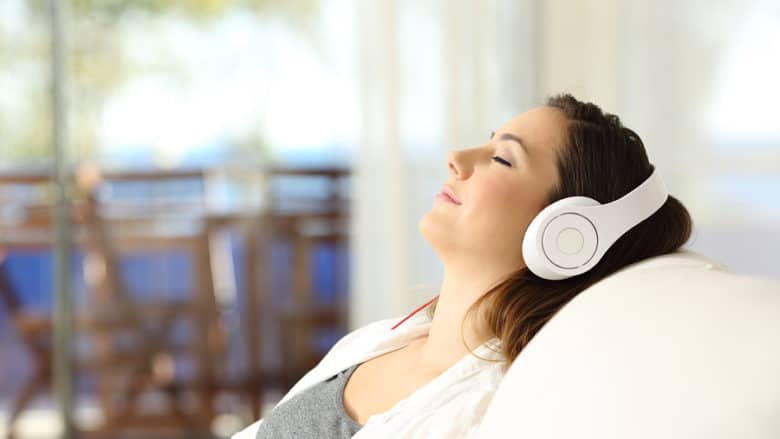
A 2013 article published by the National Library of Medicine found that piano practice can actually help treat depression and alleviate stress in elderly adults. Despite the studied demographic being older adults, these findings are encouraging of all ages that piano practice can serve as a holistic and natural treatment for depression and mood disorders.
Source: NCBI
I hope you find this information helpful and that it encourages you to take up lessons today! It's one of the best gifts you can give yourself that will last a lifetime!
Digital or Acoustic: What Kind of Piano Should You Get
Now that you're interested in taking piano lessons seriously, your next step is choosing a piano that you will bring home to the family!
If you're fortunate, you may already have a piano or keyboard at home. It may not have seen better days, but now that you're taking things seriously it's time to see if you need to do an upgrade or two.
Problem is, there are so many varieties to choose from. It is difficult to know where to start or how much to spend. Then there's the choice between acoustic and digital. Naturally, there are many advantages and disadvantages to both, so I will do my best to list them here. I've had the opportunity to own and use many different kinds of pianos and keyboards, so let my hands be your guide!
Acoustic Pianos
These of course are the traditional kind. There are many varieties and sizes: apartment-size, upright grand, baby grand, concert grand. Now unless you plan on being the next great virtuoso, there are many great apartment-sized pianos you can choose from either new or secondhand.
Advantages
- You get a true stringed instrument with hammer-action keys made of wood and coated with plastic (not ivory).
- You can play music during a power outage.
Disadvantages
- Pianos require tuning at least twice per year in order to keep the tone sounding nice. Stings get to be thrown out of tune with lots of use or heavy play.
- You need to place the piano in an area away from outside walls for proper humidity control. Pianos made of wood will go out of tune if the humidity varies greatly.
- You need to have enough room in your house to place the piano.
- Moving the piano to a different room or house may be costly and cause more detuning.
- Repairs and maintenance are costly.
- High cost of replacement.
Digital Pianos
These have much improved since their inception in the mid 20th century. Digital pianos use an arrangement of sampled sounds from actual pianos to generate the tones you hear when keys are pressed. These are not the same piano sounds generated from a synthesizer. Most inexpensive keyboards offer this lower quality sound such as many in the Casio and Yamaha series of portable keyboards.
Advantages
- Many digital pianos are equipped with a USB/MIDI port for use with connecting to a tablet or computer. This can be used to control software instruments on a tablet or computer to record keystrokes and other electronic music data.
- Can be used in conjunction with a Digital Audio Workstation (DAW) to make multitrack recordings of music with many instruments (keyboard, drums, synthesizer, vocals, etc.)
- Can be moved around with relative ease. Varieties come in the same size as many apartment or baby grand piano styles.
- They do not go out of tune.
- Low cost of replacement,
Disadvantages
- Avoid water at all costs!
- Bad news for you if there's a power failure.
- Lower-quality keyboards have a tendency to break easily.
- Computer connectivity can sometimes be problematic (i.e. driver updates, lack of support, computer hardware issues)
- Motherboards or chips may become defective over time.
Recommendations
Unless you're planning to be a concert pianist, your best bet would be to invest in a good digital piano with weighted hammer-action keys. 88-keys is the standard, however, there are some that come with 76-key and 61-key variations.
The feel is comparable to many good-quality baby grand pianos but without the high price tag and constant maintenance. Roland and Yamaha have good-sounding digital pianos with an excellent feel. They offer full MIDI capability, and when used in conjunction with a DAW such as Logic Pro or Arturia V Piano that come with many fantastic samples of pianos, you will not know the difference and may never look at acoustic pianos the same way.
Getting a piano is a sound investment (no pun intended), and in the end, whether it's an acoustic or digital piano, you win either way as a musician for life!
Simple Tips For Effective Piano Practice
As the old saying goes, practice makes perfect!
Although this is true, we sometimes forget that it's not the quantity or how often we do something, but the quality of the effort we put in each time that makes any practice perfect.
With this in mind, here are a few do's and don'ts to help keep your practice routine fun and rewarding.
Do's
- Just like doing any physical exercise, you need at least a good 20 minutes of practice time to see any lasting results. 30 minutes is ideal. 45 minutes to an hour if you feel you want to push a little more.
- Take a moment to prepare your practice space. Your piano is like your desk at school or study room at home. Try organizing your books and materials to avoid clutter around the piano.
- Make sure you sit with the correct posture at the piano, with your back straight and arms at a 90-degree angle with the keyboard.
- Take a few moments to relax by taking a few deep breaths and releasing the air slowly. Good practice starts with a calm mind. This also helps you to retain what you will learn more effectively.
- When going over a difficult part, take your time and slow down as much as you need. It's not necessary to get everything right on the first try. Going slowly and using a metronome to gradually increase your playing speed will go a long way.
- Put up with distractions. Sometimes you can't avoid having people or distractions while you practice. With patience and a little effort, you can learn to "block out" the noise around you and focus on your lessons.
Dont's
- Don't rush through your practice. Take your time so that you can reward yourself with beautiful music and a job well done!
- Avoid distractions. If there are people around, let them know ahead of time that you intend to do a practice shortly and would like to have as few distractions as possible.
- Don't give up. The only mistake you can make is to not try again.
- Don't over practice. As with all things balance is key.
- Don't be afraid to ask questions. Your teacher is there to help you understand what you need to know.
- Don't stop playing! Once you've gotten the hang of playing piano, make it a permanent part of your life.
To summarize, music practice should never be about just another activity or hobby to pass the time. Our body is like a very complex machine. Music helps to keep all the parts works together and in harmony, because this is how life should be experienced, one measure, one day at a time.
COVID-19 Policy
Dear Friends,
I do everything possible to reduce the risk of transmitting this disease.
For the latest news on the Coronavirus (COVID-19) outbreak please visit the Government of Canada's website, by clicking the link below.
https://www.canada.ca/en/public-health/services/diseases/coronavirus-disease-covid-19.html
Please stay safe everyone, and wear a mask!
- Richard



